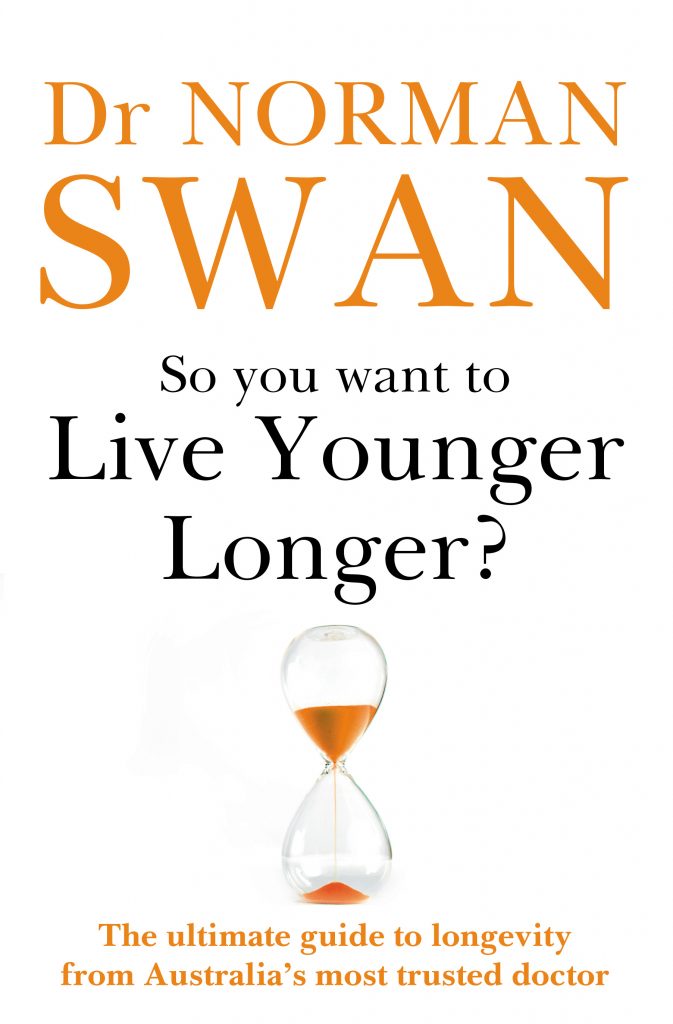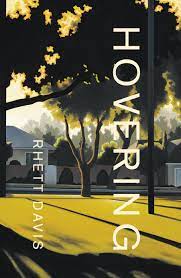Title: So You Want to Live Younger Longer?
Author: Dr Norman Swan
Publisher: Hachette, July 2022; RRP: $34.99
Dr Norman Swan has become well known in Australia over the past three years as a prominent Covid advisor and commentator. He is the host of Radio National’s Health Report and co-host of the acclaimed Coronacast. Dr Swan’s an award-winning broadcaster, investigative journalist and producer.
So You Want to Live Younger Longer is a book that covers a wide range of topics about health as we, as a community and culture, age. He not only focuses on older people but looks in detail at what people of all ages can do to maximise living healthier and feeling younger into their older age. This is not necessarily a book about finding the perfect recipe for beating the clock; it’s a book that looks at all aspects of longevity and health over generations. It’s a body of work that balances the broad aspects of health, genetics, lifestyles, age, and culture.
The book is presented in 10 parts which makes it easy to read. Statistics and research are used engagingly to broaden and reinforce what is known and what is still being suspected or worked on. The author explores a range of general health aspects: diet and its relationship to cultural and family background, poverty and postcodes most likely to have good and poor nutritional outcomes, family genetics, mental health, and the broader healthcare system issues.
@ the hawke centre, 2021
Food, and the many different diets and approaches, are explored in a refreshing and extensive manner backed up by recent studies and research. The section on medication and pills is fascinating and well substantiated. Exercise and its benefits and relationship to staying younger as we age is enlightening and an eye opener for those of us who are less than active. As expected, ‘Bugs, Bowels and Hormones’ in part five provides fascinating reading. There is also a small section on plastic surgery which talks briefly about the stigma of ageing, particularly for women.
There is a substantial part of the book that provides information, some detailed, on general health issues, from high blood pressure to ‘fatness’ measures, alcohol, and sex. Mental health is addressed under the label of ‘Does the Mind Matter?’ Mental wellness and its relationship to living younger longer is explored, whilst the issues of sleep and its often-overlooked importance produces surprising findings.
On a practical level there is a wonderful guide called ‘Here’s what to do in your twenties’, Also included is what to do in your thirties, forties, fifties, sixties, seventies, eighties, and nineties. These parts are instructive and encouraging. The book focuses on prevention and avoiding pitfalls in relation to general health. Norman Swan says it’s ‘hard to live younger longer if you die of a preventable disease first’.
The end note is a short nod to current environmental changes and the abuse of medicine. Swan is quick to point out the threats to our planet and the consequence of not doing enough to address environmental issues. He says, ‘So you want to live younger longer? We know how. Just gotta do it.’
This non-fiction book is professionally written with humour and wit as well as a down-to-earth approach from a practitioner who understands the difficulties surrounding remaining healthy and ensuring we live as young as we can for as long as we can. Reading this account was reassuring and educative. For those inclined to want more reading on the topics raised in the book, the notes and the index at the back of the book span 50 pages.
Dr Norman Swan writes as entertainingly as he broadcasts. His voice is confident and trustworthy, especially when he deals with tough health messages many of us would prefer not to know about.
Reviewed by: Heather Whitford Roche
Ballarat Writers Book Review Group July 2022
Review copy provided by the publisher

